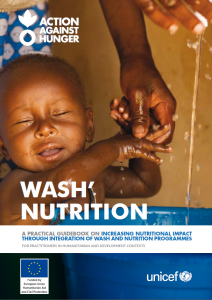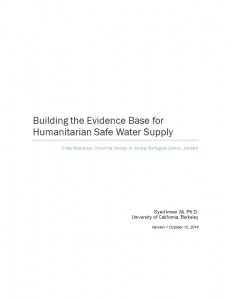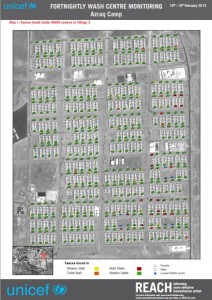
A practical guidebook on increasing nutritional impact through integration of WASH and Nutrition programmes. It is meant for practitioners in humanitarian and development contexts.
Tags: Capacity Building, Child Friendly Facilities, Cross Cutting, Excreta Management, Human Right to Water / Sanitation, Hygiene Promotion, Protection, Solid Waste Management, WASH Assessments, WASH Coordination, WASH Monitoring, WASH Programme Health and Safety, WASH Strategy Development, and Water Supply. Locations: Africa, Asia and the Pacific, Central Asia, Europe, Middle East, and South-West Asia. Languages: English. Organisations: ACF and UNICEF. Categories: WASH Policy Guidelines and WASH Reference Documents.

Current emergency safe water guidelines are based on little field evidence. We launched an observational study on chlorine decay in the Azraq refugee camp, Jordan in July-August 2014 in order to: i) develop evidence-based guidelines for centralized batch chlorination in humanitarian operations; and ii) identify factors affecting the safe water chain. This study builds on earlier work from South Sudan and adds to the evidence base that study initiated.

This document provides a snapshot of WASH service provision in Azraq Refugee Camp undertaken on the 15th – 16th February 2015. The document document provides an overview of the conditions in 912 WASH blocks with a focus on structural integrity, safety, access, and cleanliness.
 English
English



